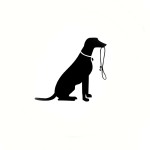 Frequently Asked Questions
Frequently Asked Questions
What are your training methods?
Our methods are safe, proven, and reliable. Simply put, we combine structure, balanced energy, and the right tools for each individual dog in order to teach. We do not use excessive force, neither do we bribe dogs with treats all day. Instead we use a balanced approach to encourage each dog to reach his potential through praise and approval, while still maintaining the element of discipline when necessary.
Discipline does not mean pain, fear, or intimidation. It only refers to establishing a line of communication and setting clear boundaries. Just like us, dogs need discipline in order to learn, be happy, and be safe. Anyone who says that all discipline is bad has not been schooled in the correct way to utilize it.
When choosing a tool or tools for each dog, we let the dog tell us what they need. Commonly, we use anything from slip leads to chain collars to prongs to flat buckle collars. We use these tools to communicate to the dog, never to cause undue harm. We also use food, toys, praise, physical touch and affection. Building trust is just as important as setting rules and guidelines.
When training, every dog is treated as an individual. Each animal has their own personality, as well as their own likes, dislikes and quirks. We will find what makes your dog happy and use it to establish a trusting relationship where learning can be fun and exciting!
Where are you located?
The Academic Hound is a home-based business that conducts the Board & Train programs at our family home in Kyle, TX. We do the Behavior Consults and Puppy Head Start at your own home! We serve the Austin area, as well as Hays county including San Marcos, Kyle and Buda. To see a full list of the locations we cover, click here.
What is the owner's role in the training process?
As the dog's owner, your role is vital. This is especially true if your dog will be undergoing rehabilitation for a severe behavior issue.
If your dog is enrolled in Board & Train, you will need to practice after the training is finished in order to keep your dog in tip-top shape! This is true with any training your dog might receive from any trainer. Luckily, practicing obedience is a lot of fun and doesn't have to involve long sessions. Fifteen minutes, once or twice a day for a couple weeks, will suffice. As your dog becomes more familiar with the commands you can drop your practice back to only a few times a week. Most owners really enjoy the bond they share with their dog while training, and love to work on new challenges with their best friend!
If your dog is here for a rehabilitation process, either for aggression or another deep-seated behavior issue, it is very important to take the advice your trainer will give you in order to see the full effect of rehabilitation. This advice might involve you making changes to your household while you continue with the plan set out for you by your trainer. This is done for the benefit of you as well as your dog. Recognizing that most bad behaviors are caused by a variety of factors, we must work to change all of those factors in order to see optimum results. Your trainer will build the groundwork for you and your dog in the Board & Train process, and then help you with the further steps you must then take at your home.
Why don't you offer classes?
We find that the learning process is both simpler and less-stressful for the dog when they are being taught one-on-one. Also, it's not fair to ask your dog to learn of new things while strange dogs are barking and possibly upsetting your dog. Would you learn well if placed in a stressful environment? Probably not.
This is not to say that distractions don't have a place in training - they do! Just not when we're teaching new things. Save the class for AFTER the dog is already comfortable with the commands.
At what age can my dog be trained?
While a very young puppy can be taught some commands or tricks, we recommended waiting until 16 weeks of age to begin formal training. Other than that, we train dogs of all ages, from 4 months to 14 years (or older!).
What are the prerequisites for my dog or puppy to attend the Board & Train Programs?
-
Must be a minimum of 16 weeks old
-
Must be up-to-date on Rabies, Distemper, Parvovirus & Bordatella.
-
Must have a negative fecal float for bacteria and parasites
-
Must be flea free
